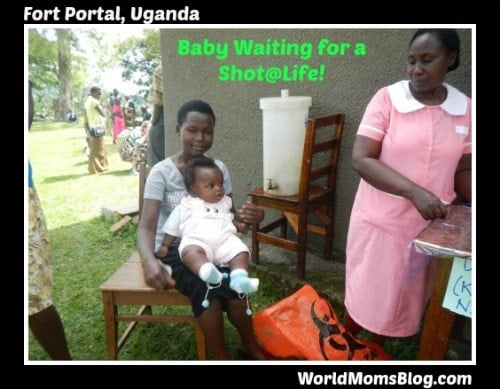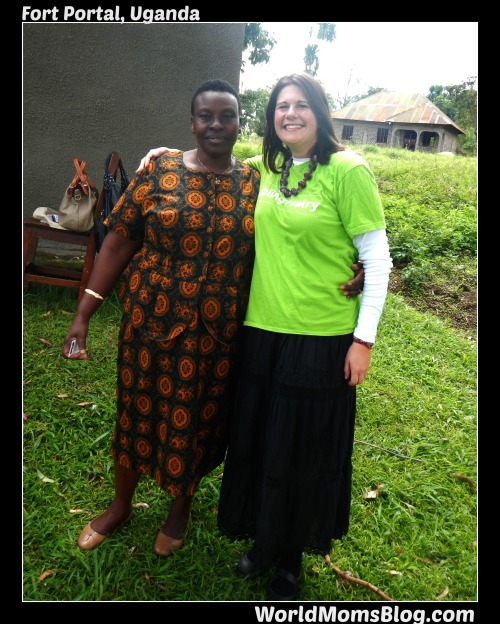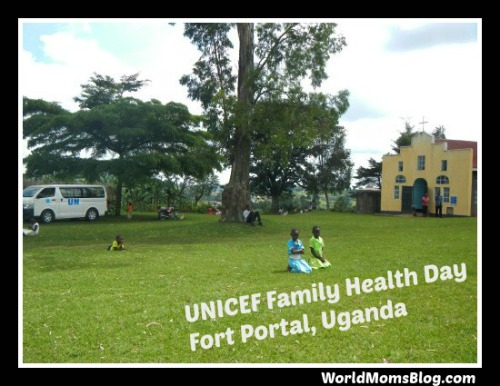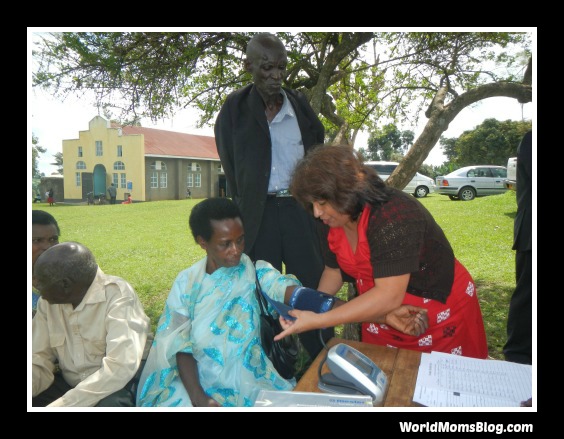
by Mamawearpapashirt (Singapore) | Jul 4, 2013 | Being Thankful, Singapore, World Moms Blog
 According to international pollster Gallup, based on a poll of nearly 150,000 people worldwide conducted in 2011, Singapore came out tops on the list of countries that are least happy.
According to international pollster Gallup, based on a poll of nearly 150,000 people worldwide conducted in 2011, Singapore came out tops on the list of countries that are least happy.
To be honest, I was surprised and yet not. Singapore is a pretty well-to-do country, well-organised and well-governed, in most senses of the word.
Yet, we’ve all been labelled as “unhappy people.”
A little video went out to the streets of Singapore to ask people “What makes YOU happy?” Here are some popular answers:
- Love.
- Family.
- My wife / husband.
- When the kids are happy.
- Time. To rest. Exercise. Do the things we love. Spend time with the people we love.
(Things that people living on the other end of the globe could probably be saying too huh?)
It struck me to realise that the things that make us happy are pretty universal, shared across nationalities, ethnicities, gender, and socio-economic status. They relate to every human being’s most intrinsic needs – We all want to be loved, want to feel safe, be understood, and valued by others, especially our loved ones. Don’t we?
I think thankfulness is one of the major keys to happiness.
But when we start comparing with the Joneses, or seeing and desiring the things that we don’t have, it can start to feel pretty ugly inside.
Also, a simple act of kindness and helping others. Somehow never fails to make us feel warm and fuzzy inside.
Ultimately, happiness lies in our own little hands. We can all take steps towards happiness today. By appreciating ourselves and our spouses, counting our blessings, cherishing time with family (despite our individual weaknesses and quirks), and enjoying our children.
Seeing my little ones jump and tear down the pathway towards the playground makes me happy.
Receiving a hug and a kind loving word from my husband at the end of the day makes me happy.
Making time to dig into a good book, or going for a walk and counting bees and flowers make me happy.
We may all have our struggles, our fears, our worries, but by breathing out life’s stressful moments, and breathing in such moments of inexpressible joy and delight (and letting them linger in my heart) keeps me grounded, and helps me navigate this journey we’re all on – parenthood.
Joy is a way of life. An intentional choice.
When our kids see us making that choice, I’m sure they are likely to make similar choices in future. Positive. With a bright outlook on life. Resilient. People who try to make the best out of the lemons that life may bring.
What do you think? And what makes you happy?
If you have 4.5 minutes, do watch this video to see what other Singaporeans are saying:
[youtube http://www.youtube.com/watch?v=1ZaIsR9seMo]
This is an original post by June Yong of Singapore, for World Moms Blog. June blogs about motherhood and other joys, over at Mama Wear Papa Shirt.
Photo credited to http://quotez.co/there-is-always-something-to-be-thankful-for-happiness-quotes/
June, born and bred on the sunny and sometimes rainy shores of Singapore, is a mother of two - a chatty 4 y.o. girl and a toddler boy who babbles. She works part-time as a communication consultant, and she is deeply passionate about family, writing, faith, and good old-fashioned love. She can be found on her blog, Mamawearpapashirt.
More Posts

by Mama B (Saudi Arabia) | Jul 3, 2013 | 2013, Politics, Religion, Saudi Arabia, Transportation, Travel, Uncategorized, Women's Rights, World Motherhood
 We always talk about “first world problems,” and, I, most of the time, complain about women not being able to drive in Saudi Arabia in the “first world problem” sense. “My driver is late!” or “It’s too hot in the car. I wish he’d switch on the AC before I get in” or “Why does it take so long for my driver to answer his phone!”
We always talk about “first world problems,” and, I, most of the time, complain about women not being able to drive in Saudi Arabia in the “first world problem” sense. “My driver is late!” or “It’s too hot in the car. I wish he’d switch on the AC before I get in” or “Why does it take so long for my driver to answer his phone!”
It’s easy for me to forget that for the majority of women in Saudi, it is very much a paralyzing issue. As I was leaving Saudi last week, I was in the airport lounge, and one of the women working there was having a private conversation on her mobile which got progressively louder. She kept saying, “Swear he’s ok! Why can’t I talk to him?”
After she hung up she said to me, “My son has had an accident!” I asked if he was ok. She told me she didn’t know and that someone at the scene had called her and told her about it, but they wouldn’t give him the phone and wouldn’t give her details. I asked why she didn’t just go to him, and she told me she couldn’t.
“Surely your supervisor wouldn’t have a problem with you leaving early to go there!” I said.
“I don’t have any way of getting there!”, she said. “My son is usually my driver. I don’t have brothers, and I’m divorced.”
And that’s the simple truth. Her son was on a street somewhere, in God knows what state ,and she was stuck at work. She eventually took a cab and declined the offer to use my car.
I always dread talking about women driving in Saudi because it’s been talked to death, and there’s nothing to discuss, really, since the fact that women should be allowed to drive is such an obvious one. It’s like discussing if women should be allowed to work… or walk even. Not driving means different things to different people. To me, it’s something I don’t think about on a day-to-day basis, unless we have a driver crisis. But even then, I rely on my mother’s, sister’s or brother’s driver to get me where I need to go, and I have never been stranded at home or elsewhere because of it. I forget that this is not the case for everyone.
Yes, some of my friends can’t do lunches on certain days because of the driver issues (lack of reliable ones or lack of ones all together), so when their husbands work they have to stay home. While many, many Saudi families have a driver working for them, not all of them do. And honestly, who cares if I can’t get to my family visit on time or to the shops before they close, when this mother couldn’t get to her son, who I pray was not badly injured in this accident.
And if, God forbid, he was badly injured, or worse, and he is her only “mahram” (male guardian), then she effectively has to put her life on hold till he gets better. And if it’s not a “getting better” situation, then she is stuck. Driving will be only one of her problems.
We do have taxis, which are generally decent, but many women don’t like to use them or the men in their lives don’t like them to. Which is all fine and dandy if these men are willing to be their wives’ personal chauffeurs, but if they refuse, then the women are stuck. But they do sometimes say “no,” and their wives, sisters, daughters comply. I have never really asked my husband how he would feel about me riding a taxi, since there never was a need to before, but I know that even if he didn’t want me to ride one, for what ever reason, he would never tell me I couldn’t.
Work has already begun on the metro system in Riyadh, and I am assuming that it will have a similar set up to Dubai, where there is a women’s tram. (Although in Dubai it is optional to go on that tram.) It will be interesting to see what we end up with, but is public transportation the answer to this problem? No.
Women being allowed to drive is a change that has to happen. It’s going to happen. I can guarantee that, but when? And the assumption that this is a governmental decision is totally wrong as the government is doing what the majority of the population wants.
When the subject of women driving is raised, it is always surprising how many people are against it. Women included. When they decided to introduce girls’ schools, the community also spoke out against it and were fearful and pessimistic. But the government just made the change, and the people got used to it. Now more than half the college graduates in Saudi are women! So, I hope we just rip the band-aid off.
And maybe the people will come around eventually and want this change, but how long do we want to wait? So many changes have come into our country, culture and environment that people are afraid to open up anymore, but there will be no progress without it.
Maybe I am wrong though. Maybe the views have changed, but the loudest voices are still of those who are against this. In Saudi the moderate voice is the one that talks at home among friends but doesn’t really rock the boat. The extreme views tend to be loud and very well organised.
A little side note to mention is there is no law against women driving. But there is a law against driving without a license, and women can’t get their licenses in Saudi.
It should just be done! Just as the 30 women were elected into the shours counsil by royal decree one morning, this change can happen too. It would, by no means, be mandatory, and whoever doesn’t want to drive, doesn’t have to. But for the women who are paralyzed, stuck and unable to get to their sons when they are hurt, a key to a car is not much to ask.
Do you agree with me that sometimes making unpopular decisions that will better your country is ok? Or is the government’s duty? Or do you think what the people want is more important?
This is an original post to World Moms Blog by Mama B from Saudi Arabia. She can be found writing at her blog, Ya Maamaa.
Photo credit to hhdoan who holds a Creative Commons Attribution license.

Mama B’s a young mother of four beautiful children who leave her speechless in both, good ways and bad. She has been married for 9 years and has lived in London twice in her life. The first time was before marriage (for 4 years) and then again after marriage and kid number 2 (for almost 2 years). She is settled now in Riyadh, Saudi Arabia (or as settled as one can be while renovating a house).
Mama B loves writing and has been doing it since she could pick up a crayon. Then, for reasons beyond her comprehension, she did not study to become a writer, but instead took graphic design courses. Mama B writes about the challenges of raising children in this world, as it is, who are happy, confident, self reliant and productive without driving them (or herself) insane in the process.
Mama B also sheds some light on the life of Saudi, Muslim children but does not claim to be the voice of all mothers or children in Saudi. Just her little "tribe." She has a huge, beautiful, loving family of brothers and sisters that make her feel like she wants to give her kids a huge, loving family of brothers and sisters, but then is snapped out of it by one of her three monkeys screaming “Ya Maamaa” (Ya being the arabic word for ‘hey’). You can find Mama B writing at her blog, Ya Maamaa . She's also on Twitter @YaMaamaa.
More Posts

by Jennifer Burden | Jul 2, 2013 | Shot@Life, Social Good, Uganda, World Voice
This is Day 4 of a trip to Uganda with the UN Foundation’s Shot@Life campaign. World Moms Blog founder, Jennifer Burden, was part of the delegation to observe UNICEF’s Family Health Days in October 2012.

Elizabeth, a volunteer health worker and Ugandan mother who helps to administer life-saving vaccines to children under 5 years old in Fort Portal with World Moms Blog Founder, Jennifer Burden, on a Shot@Life trip to Uganda in October 2012.
At Church in Uganda
Sunday, we rose and prepared for the Family Health Day in the town of Fort Portal, which is about a 4 hour drive from Uganda’s capital, Kampala. Our delegation split in two because there were two Family Health Days within our reach that our group wanted to cover, so some of our group headed to a Catholic Church. I was with the group that was at an Anglican church for a Family Health Day.
It was that day that I met John the Baptist, a man who wished to continue school to become a priest, but economics didn’t allow him to do so. He now worked for the town of Fort Portal and accompanied us on our trip. It turned out John the Baptist has a 6 year old daughter, and she and my own 5 year daughter are becoming pen pals over e-mail. What a fantastic cultural experience that may grow out of this trip for two of the world’s children!

We arrived at a grassy knoll with a church on top of the hill. It was picturesque. The familiar (to me) tune of hymns were coming from the building, and on the outside, the health workers were setting up their stations under trees and outside of buildings. Signs were words scrawled on paper: “HIV Testing Here” “Immunizations for Children Under 5”, etc.
First, Cindy Levin’s curiosity led us all into the mass. We sat on what looked like hand made wooden pews and the church inside was painted sky blue and had what looked like Christmas garland hanging from side to side overhead. The energy of the people singing inside was intense! As the priest spoke in a local African dialect, I was able to follow the mass. Not from what he said, but by the sing-song of his tone. I recognized the “Our Father” and the “The Apostle’s Creed” from my days of growing up as a Catholic, although I currently choose not to practice a religion now.
UNICEF Family Health Day
Afterwards we met with health workers, including a lab technician conducting HIV testing, a nurse midwife, and various volunteers administering vaccines, taking blood pressure and testing for malnutrition in small children. The delegation spent time observing each post, but former Mexican nurse, Felisa Hilbert, took it one step further and helped take blood pressure to the smiles of many people waiting in line.

Felisa Hilbert, a former nurse from Mexico, volunteers to take blood pressure during a UNICEF Family Health Day on a Shot@Life trip to Uganda.
Families waited under the shade of large, beautiful trees for their family members who were utilizing the health services. I had the chance to see children receive polio vaccinations.
Interacting with the mothers who were receiving these immunization services for their children was profound for me, after spending almost a year advocating for their children to have access to them.

The people we met in Uganda were curious and open to conversation, and so were we. Having previous been an British colony, English is common in Uganda. Having this common medium, made it possible for our delegation to really experience the local culture and people of Uganda.
I asked so many questions, met so many people and took a lot of notes. The trip has been an asset for me in leading discussions on Twitter for social good for World Moms Blog, for presenting on Shot@Life, in my writing, and in lobbying US Congress on global health and vaccines, talking to friends. But perhaps, it’s greatest impact will be on my daughters due to the multitude of stories I share with them about the children I met in Uganda. My experiences as part of this delegation were so meaningful. Thank you, again, to the UN Foundation and Shot@Life for giving me this great gift that I will continue to share in my advocacy.
This is an original post to World Moms Blog by founder, Jennifer Burden, in NJ, USA. To read more about Jennifer’s trip with Shot@Life to Uganda, check out Day 1 about UNICEF offices in Kampala, Uganda, Day 2 of her trip at a UNICEF Family Health Day in Mumbende, Uganda and Day 3 about signs of poverty.
Photo credits to the author.

Jennifer Burden is the Founder and CEO of World Moms Network, an award winning website on global motherhood, culture, human rights and social good. World Moms Network writes from over 30 countries, has over 70 contributors and was listed by Forbes as one of the “Best 100 Websites for Women”, named a “must read” by The New York Times, and was recommended by The Times of India.
She was also invited to Uganda to view UNICEF’s family health programs with Shot@Life and was previously named a “Global Influencer Fellow” and “Social Media Fellow” by the UN Foundation. Jennifer was invited to the White House twice, including as a nominated "Changemaker" for the State of the World Women Summit. She also participated in the One Campaign’s first AYA Summit on the topic of women and girl empowerment and organized and spoke on an international panel at the World Bank in Washington, DC on the importance of a universal education for all girls. Her writing has been featured by Baby Center, Huffington Post, ONE.org, the UN Foundation’s Shot@Life, and The Gates Foundation’s “Impatient Optimists.” She is currently a candidate in Columbia University's School of International and Public Affairs in the Executive Masters of Public Affairs program, where she hopes to further her study of global policies affecting women and girls.
Jennifer can be found on Twitter @JenniferBurden.
More Posts - Website
Follow Me:


by Olga Mecking | Jul 1, 2013 | 2013, Being Thankful, Child Care, Family, Girls, Grandparent, Health, Husband, International, Life Lesson, Marriage, Me-Time, Motherhood, Netherlands, Parenting, Siblings, Travel, World Motherhood, Younger Children
 Imagine yourself in our situation. Your friends are getting married. The wedding is in beautiful Italy. You decide to go, even if it means leaving your two daughters with your parents-in-law, and just take the baby with you. Your in-laws arrive and you ask them to take your 3-year old to dancing class, show them where all the things are and tell them when to bring the girls to daycare. You’re excited. You pack your bags the day before the wedding and go to bed.
Imagine yourself in our situation. Your friends are getting married. The wedding is in beautiful Italy. You decide to go, even if it means leaving your two daughters with your parents-in-law, and just take the baby with you. Your in-laws arrive and you ask them to take your 3-year old to dancing class, show them where all the things are and tell them when to bring the girls to daycare. You’re excited. You pack your bags the day before the wedding and go to bed.
But you don’t sleep. Instead, you talk. You tell your husband that you’re not really happy with this arrangement. That you don’t trust your in-laws enough to leave your children with them. That you don’t even feel good about your decision to leave the children with anyone. In the end you start crying and tell your husband that your eldest daughter doesn’t like you and that you’re the worst mom ever.
And then your husband tells you that you’re an amazing mom. After you calm down and feel somewhat better he tells you that he’s not happy with this arrangement, either. You see, our little girl has just had the chicken pox, and according to my husband’s calculation, our baby would be at risk of getting it right during our trip to Italy. The baby was fussy for the last few days, he has had no fever, but his temperature is slightly elevated. What to do?
Consider two possibilities.
Number one: You decide to stay. You’re afraid that if he’s going to get the chicken pox, it will spoil your whole trip. You don’t want the other children to get it, too, and besides, traveling with a fussy baby full of ugly itchy red spots is no fun. You tell your in-laws in the morning. They stay for a few days, but that’s OK. Your MIL learns to accept your decisions and to get out of your way when you sit down to read a book. You learn to tell her when you’re overwhelmed and exercise your privileges as a mom.
When your children wake up in the morning, you feel as if you haven’t seen them for ages. You’re suddenly full of patience. You’re relieved that you didn’t have to leave without them. You braid your big girl’s hair in twelve pink little braids. You feel great. Your decision isn’t entirely selfless. You don’t trust your in-laws and don’t want to leave the girls with them, and that’s OK.
Number two: You wake up in the morning, check your baby’s temperature and decide he won’t get the chicken pox after all. You pack your bags, kiss the girls goodbye and leave to catch your flight. You have fun at the wedding, you dance and sing and eat delicious food. You realize that you haven’t had a vacation for ages. You enjoy waking up in the morning without having to get three children dressed and ready for the day. You get to have a whole conversation with your husband. You go back home and are happy to see your children again. You feel great and relaxed and you’re sure that going to that wedding was exactly what you needed right now. Your decision isn’t entirely selfish. You know very well that having a short vacation will make you more relaxed and a better mom. And that’s OK, too.
How did we choose? We stayed. I was sad not to be there when our friends said: “I do”. Our son didn’t get the chicken pox; his skin is silky smooth as always. So, was it a bad decision? No. Would it have been a bad decision had we gone? No. The thing is that while I decided to stay, if it hadn’t been for the chicken pox threat, I would have gone to that wedding.
You can make a selfish decision and still be a good mom. You can make a decision seen as selfless and make it for purely selfish reasons. It doesn’t matter. You’re a good mom.
Have you ever been in this sort of predicament? What did/would you do?
This is an original post to World Moms Blog from our writer and mother of three in The Netherlands, Olga Mecking.
The photograph used in this post is attributed to the author.
Olga is a Polish woman living in the Netherlands with her German husband. She is a multilingual expat mom to three trilingual children (even though, theoretically, only one is trilingual since she's old enough to speak). She loves being an expat, exploring new cultures, learning languages, cooking and raising her children. Occasionally, Olga gives trainings in intercultural communication and works as a translator. Otherwise, you can find her sharing her experiences on her blog, The European Mama. Also take a while to visit her Facebook page .
More Posts - Website
Follow Me:




 According to international pollster Gallup, based on a poll of nearly 150,000 people worldwide conducted in 2011, Singapore came out tops on the list of countries that are least happy.
According to international pollster Gallup, based on a poll of nearly 150,000 people worldwide conducted in 2011, Singapore came out tops on the list of countries that are least happy.















